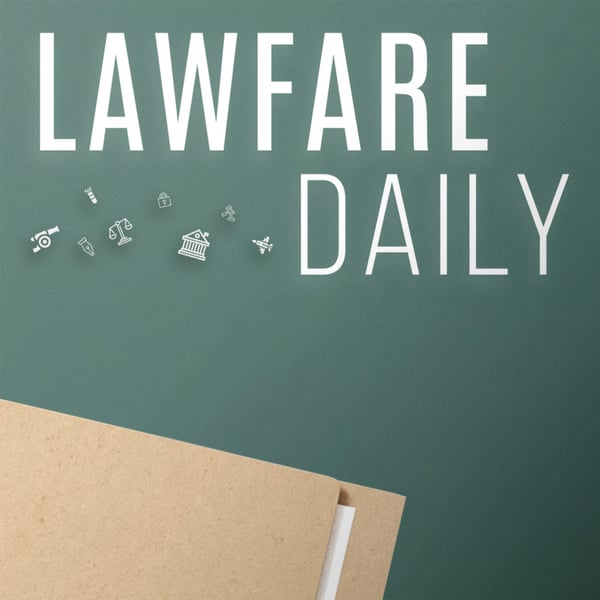Lawfare Daily: The European Court of Human Rights Takes on Digital Rights in War, with Asaf Lubin and Deb Housen-Couriel
The Lawfare Podcast
The Lawfare Institute
4.7 • 6.2K Ratings
🗓️ 22 August 2025
⏱️ 48 minutes
🧾️ Download transcript
Summary
For today's episode, Lawfare Senior Editor and General Counsel Scott R. Anderson sits down with Lawfare Contributing Editor and Indiana University Maurer School of Law professor Asaf Lubin and Hebrew University of Jerusalem professor Deborah Housen-Couriel to talk over the European Court of Human Rights' recent decision in Ukraine and the Netherlands v. Russia.
Together, they discuss how the opinion lays new ground in discussing digital rights in wartime, what issues still need to be developed further, and what it all might mean for warfare in the future, both good and bad.
For more, read Asaf and Deb’s latest piece on Lawfare, “Digital Rights in Armed Conflict and the Ukraine v. Russia Decision.”
To receive ad-free podcasts, become a Lawfare Material Supporter at www.patreon.com/lawfare. You can also support Lawfare by making a one-time donation at https://givebutter.com/lawfare-institute.
Support this show http://supporter.acast.com/lawfare.
Hosted on Acast. See acast.com/privacy for more information.
Transcript
Click on a timestamp to play from that location
| 0:00.0 | The following podcast contains advertising. |
| 0:04.4 | To access an ad-free version of the Lawfare podcast, become a material supporter of Lawfare at |
| 0:11.5 | patreon.com slash lawfare. That's patreon.com slash lawfare. |
| 0:18.2 | Also, check out Lawfare's other podcast offerings, Rational Security, Chatter, |
| 0:25.2 | Lawfare No Bull, and The Aftermath. |
| 0:31.3 | All of these measures taken together, filtration measures taken together, not only are standalone violations |
| 0:38.8 | of Article 8, but the court has characterized them as gateway violations that permit or have |
| 0:45.6 | printed Russian forces to violate additional human rights, including force kidnappings, |
| 0:54.0 | detentions, people who've been lost and cannot be |
| 0:58.2 | contacted by their families. They've been disappeared. It's the Lawfare podcast. I'm senior editor |
| 1:03.6 | Scott R. Anderson, the contributing editor Asaf Lubin of the Indiana University Marr School of Law, |
| 1:09.1 | and Deborah Housen Curiel of the Hebrew University |
| 1:11.4 | of Jerusalem. |
| 1:12.6 | The court has not, both in a case called Centrum for Dresa v. Sweden and a case called Big |
| 1:18.2 | Brother Watch for UK, the court has not rejected the possibility of foreign mass surveillance. |
| 1:24.0 | That is not what the court does. Rather, the court tries to identify whether in choosing to |
| 1:29.3 | employ foreign mass surveillance, you've taken all the necessary precautions to avoid abuse |
| 1:34.8 | and to ensure protection. |
| 1:36.3 | Today, we're talking about the European Court of Human Rights's recent decision in Ukraine |
| 1:41.3 | and the Netherlands v. Russia and its landmark approach to digital |
| 1:44.4 | rights in the context of armed conflict. |
| 1:48.0 | Today we're here to talk about a really interesting decision that came down a few weeks |
... |
Please login to see the full transcript.
Disclaimer: The podcast and artwork embedded on this page are from The Lawfare Institute, and are the property of its owner and not affiliated with or endorsed by Tapesearch.
Generated transcripts are the property of The Lawfare Institute and are distributed freely under the Fair Use doctrine. Transcripts generated by Tapesearch are not guaranteed to be accurate.
Copyright © Tapesearch 2025.

